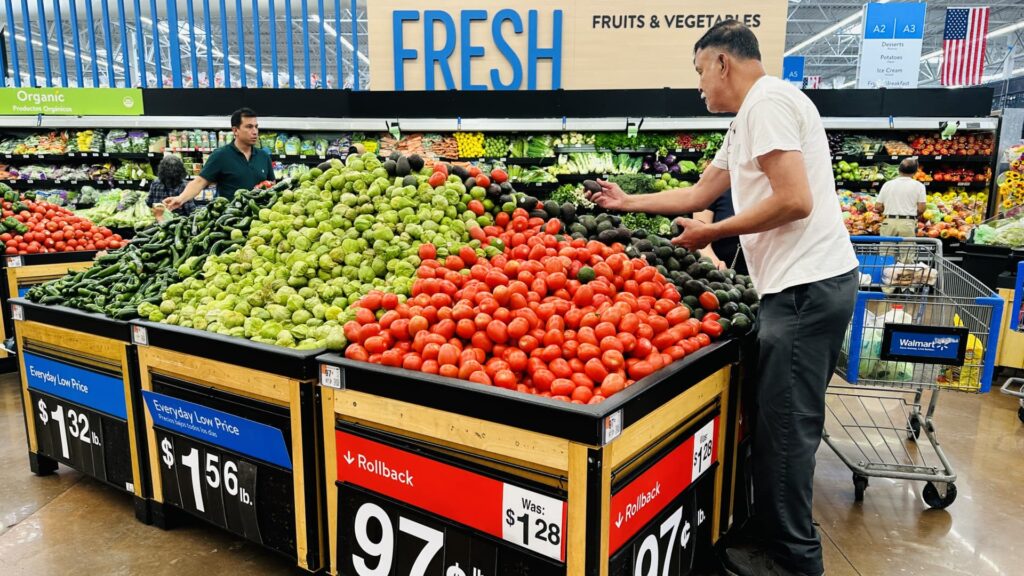Shoppers buy groceries at a Walmart in Rosemead, California, on April 11, 2025.
Frederic J. Brown | Afp | Getty Images
More Americans are opting for buy now, pay later (BNPL) loans to purchase groceries, and late payments on these loans are also rising, as per recent data from Lending Tree released on Friday.
This trend suggests that a segment of consumers is struggling due to economic uncertainties, dealing with challenges like ongoing inflation, high interest rates, and tariff concerns that make essentials like groceries harder to afford.
A survey conducted between April 2-3 with 2,000 U.S. consumers aged 18 to 79 revealed that nearly half have used BNPL services. Among them, 25% reported using these loans for grocery purchases, a notable increase from 14% in 2024 and 21% in 2023, according to the firm.
Additionally, 41% of respondents admitted to making a late payment on a BNPL loan in the past year, rising from 34% the previous year.
Matt Schulz, Lending Tree’s chief consumer finance analyst, noted that most respondents who reported late payments indicated they were only delayed by about a week.
“Many people are facing financial struggles and seeking ways to stretch their budgets,” Schulz explained. “Continued inflation and high interest rates, along with uncertainties surrounding tariffs and other economic matters, are causing many to look for options to manage their finances.”
“For a significant number, this means relying on BNPL loans, regardless of potential repercussions,” he added.
While Schulz refrained from labeling these statistics as a recession signal, he did mention that conditions are likely to worsen before improving.
“In the short term, I believe things will get tougher,” Schulz remarked. “I don’t anticipate these numbers improving anytime soon.”
BNPL loans enable consumers to break down larger purchases into smaller payments, making them an attractive alternative to credit cards because they typically don’t incur interest. However, late fees can be significant, and managing several loans can become complicated. According to Lending Tree, 60% of BNPL users reported having multiple loans simultaneously, with nearly 25% managing three or more at once.
“It’s crucial for individuals to exercise caution with these loans,” Schulz advised. “While they can be useful interest-free resources to bridge paychecks, mismanagement carries significant risks.”
Recent findings from Lending Tree follow Billboard’s report indicating that around 60% of general admission attendees at Coachella financed their tickets using BNPL loans, igniting discussions about consumer debt and economic conditions. Further, DoorDash’s announcement that it would accept BNPL payments from Klarna for food deliveries sparked humor and commentary about Americans financing everyday items like burgers and burritos due to financial strain.
In recent years, despite ongoing inflation and elevated interest rates, consumers managed to cope relatively well, benefiting from a robust job market and wage growth that kept pace with inflation for many. However, in early 2023, major corporations like Walmart and Delta Airlines began to signal a shift in consumer demand, anticipating lower sales than previously expected.


